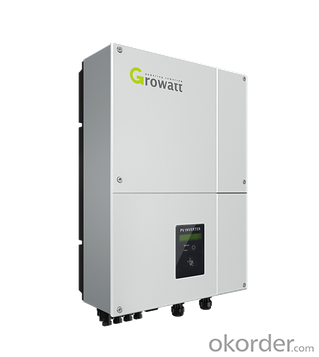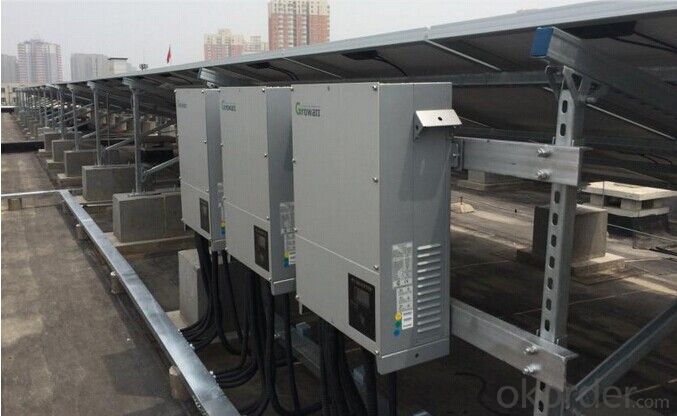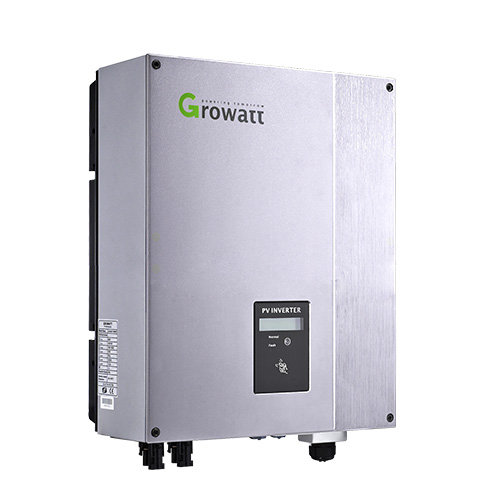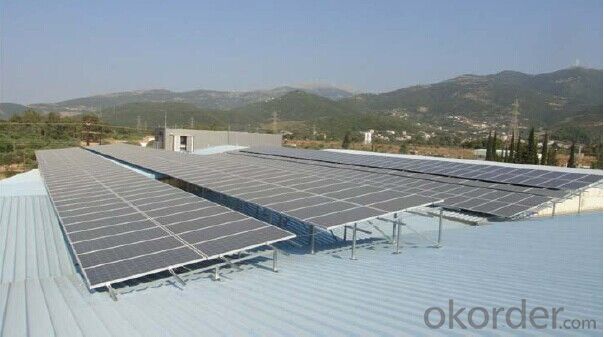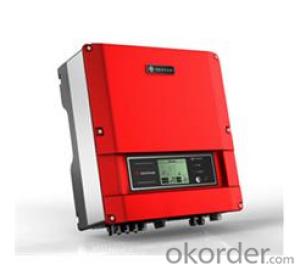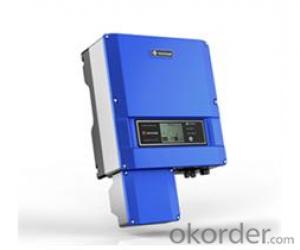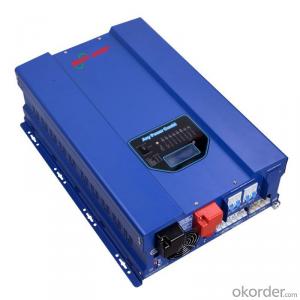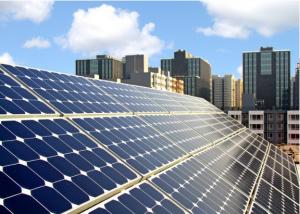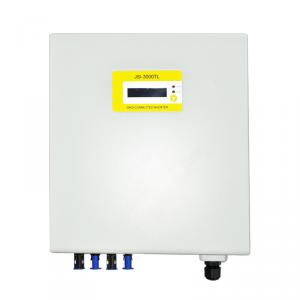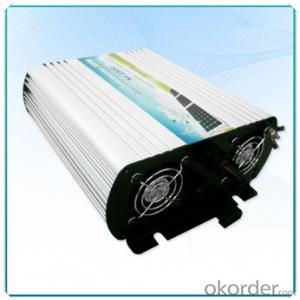Solar Inverter 3600W-5000W Grid Tied Solar Inverter
- Loading Port:
- Shekou
- Payment Terms:
- TT or LC
- Min Order Qty:
- 10 pc
- Supply Capability:
- 10000 pc/month
OKorder Service Pledge
OKorder Financial Service
You Might Also Like
Solar inverter 3600W-5000W Grid Tied inverter
Maximum efficiency of 97.9% and wide input voltage range
Internal DC switch
Transformerless GT topology
Compact design
Multi MPP controller
MTL-String
Bluetooth/ RF technology/ Zigbee/ Wi-Fi
Sound control
Easy installation
String Inverter
Maximum efficiency of 97.9% and wide input voltage range and dual MPPT design enable flexible installation
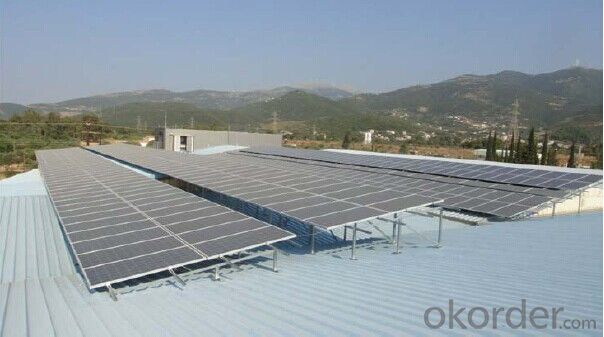
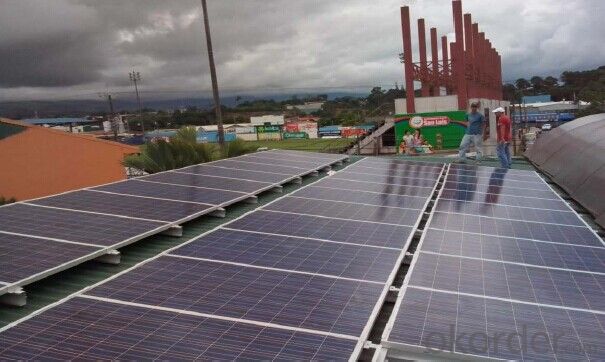
3600MTL | 4200MTL | 5000MTL-S | Growatt 5000MTL | |
| Input data | ||||
| Max. DC power | 4100W | 4800W | 5300W | 5800W |
| Max. DC voltage | 600V | 600V | 600V | 600V |
| Start Voltage | 120V | 120V | 120V | 120V |
| PV voltage range | 90V-600V | 90V-600V | 90V-600V | 90V-600V |
| MPPT work voltage range/ nominal voltage | 95V-600V/360V | 95V-600V/360V | 95V-600V/360V | 95V-600V/360V |
| Full load dc voltage range | 190V-580V | 175V-580V | 175V-580V | 175V-580V |
| Number of MPP trackers /strings per MPP tracker | 2/2 | 2/2 | 2/2 | 2/2 |
| Max. input current of tracker A / trackerB | 10A/10A | 15A/15A | 15A/15A | 15A/15A |
Max. input current per string of tracker A / trackerB | 10A/10A | 15A/15A | 15A/15A | 15A/15A |
| Output (AC) | ||||
| Rated AC output power | 3600W | 4200W | 4600W | 5000W |
| Max.AC power | 3600W | 4200W | 4600W | 5000W |
| Max. output current | 18A | 21A | 23A | 25A |
| AC nominal voltage; range | 220V/230V/240V; 180Vac-280Vac | 220V/230V/240V; 180Vac-280Vac | 220V/230V/240V; 180Vac-280Vac | 220V/230V/240V; 180Vac-280Vac |
| AC grid frequency; range | 50/60Hz;±5Hz | 50/60Hz;±5Hz | 50/60Hz;±5Hz | 50/60Hz;±5Hz |
| Power factor at rated power | 1 | 1 | 1 | 1 |
| THDI | <3% | <3% | <3% | <3% |
| AC connection | Single phase | Single phase | Single phase | Single phase |
| Efficiency | ||||
Max. efficiency | 97.6% | 97.9% | 97.9% | 97.9% |
FAQ
1. Have any design tool and how to use it?
Shine Design is the system design software just for inverters, It can conduct installers to figure out panel numbers for a system, panel numbers for each string, and which inverter model is suitable for the system. Moreover, it can print a design report after input all necessary parameters, can calculate DC/AC wire wastage, annual generation, etc.
2. Does the inverter have monitoring solutions for residential system?
For small rating system, we have wired two monitoring solution (ShineNet via RS232 or RS485). (a) Local wireless monitoring solution (ShineVision via RF module communication) (b) Global wireless monitoring solution (WIFI module via WIFI network)
3. Do you have free solution for monitoring?
ShineNet is an inverter monitoring software run in Windows XP, Windows Vista, Windows 7 operating system. It can monitor inverter via RS232 (or RS232 convert to USB cable) and RS485 wire connection. Customers can purchase the cable locally to get the inverter monitored, it is simple.
- Q: Can a solar inverter be used with a solar-powered educational system?
- Yes, a solar inverter can be used with a solar-powered educational system. A solar inverter is responsible for converting the direct current (DC) produced by solar panels into alternating current (AC) that can be used to power electrical devices. In the case of a solar-powered educational system, the solar inverter plays a crucial role in converting the DC energy generated by the solar panels to AC energy that can be utilized by the educational equipment, such as computers, projectors, or other electrical devices, thereby enabling the system to function efficiently.
- Q: How does a solar inverter handle variations in grid frequency?
- A solar inverter handles variations in grid frequency by continuously monitoring the frequency of the grid and adjusting its own output accordingly. If the grid frequency increases, the inverter decreases its output to maintain a stable supply. Conversely, if the grid frequency decreases, the inverter increases its output to compensate for the drop. This enables the solar inverter to synchronize with and support the grid, ensuring a reliable and stable power supply.
- Q: Can a solar inverter be used with different types of electrical appliances?
- Yes, a solar inverter can be used with different types of electrical appliances. The inverter converts the direct current (DC) produced by solar panels into alternating current (AC) that is compatible with various appliances. This allows for the use of solar energy to power a wide range of electrical devices and appliances in homes or businesses.
- Q: What is the role of a synchronization circuit in a solar inverter?
- The role of a synchronization circuit in a solar inverter is to ensure that the inverter's output waveform is synchronized with the grid's waveform. This is important because the grid operates at a specific frequency and voltage level, and any deviation can lead to power quality issues or damage to electrical equipment. The synchronization circuit adjusts the inverter's output waveform to match the grid's waveform, allowing for efficient and safe energy transfer between the solar system and the electrical grid.
- Q: Can a solar inverter be used with a ground-mounted solar array?
- Yes, a solar inverter can be used with a ground-mounted solar array. A solar inverter is responsible for converting the DC (direct current) electricity produced by the solar panels into AC (alternating current) electricity that can be used to power homes or businesses. Whether the solar array is ground-mounted or roof-mounted, the solar inverter plays a crucial role in converting the electricity for use in the desired location.
- Q: Can a solar inverter be used with a solar-powered security camera system?
- Yes, a solar inverter can be used with a solar-powered security camera system. A solar inverter is responsible for converting the direct current (DC) produced by solar panels into alternating current (AC) that can be used to power electrical devices, including security cameras. By connecting the solar panels to a solar inverter, the generated solar energy can be efficiently utilized to power the security camera system.
- Q: Can a solar inverter be used with different types of mounting systems?
- Yes, a solar inverter can be used with different types of mounting systems. The solar inverter is responsible for converting the direct current (DC) generated by the solar panels into alternating current (AC) that can be used to power electrical devices. It is compatible with various mounting systems such as rooftop, ground-mounted, or pole-mounted installations, as long as the solar panels are properly connected to the inverter.
- Q: Can a solar inverter be used in parallel configurations for increased power output?
- Yes, a solar inverter can be used in parallel configurations to increase power output. By connecting multiple inverters in parallel, the total power output can be increased, allowing for more efficient utilization of the solar energy generated. This parallel configuration allows for better distribution of the power load and helps to achieve a higher overall system capacity.
- Q: How does a solar inverter handle voltage flicker?
- A solar inverter handles voltage flicker by constantly monitoring the grid voltage and adjusting its output to maintain a stable voltage. It uses advanced control algorithms to quickly respond to fluctuations and minimize the impact of voltage flicker on the connected devices.
- Q: Can a solar inverter be used in conjunction with a wind turbine?
- Yes, a solar inverter can be used in conjunction with a wind turbine. Both solar panels and wind turbines generate DC (direct current) power, which needs to be converted to AC (alternating current) power for use in homes and businesses. Solar inverters are designed to convert DC power from solar panels to AC power, but they can also be used to convert DC power generated by wind turbines. By connecting a wind turbine to a solar inverter, the DC power generated by the wind turbine can be converted to AC power and used to power electrical devices or be fed into the grid. This allows for the integration of multiple renewable energy sources, such as solar and wind, in a single system, providing a more reliable and efficient energy generation solution.
Send your message to us
Solar Inverter 3600W-5000W Grid Tied Solar Inverter
- Loading Port:
- Shekou
- Payment Terms:
- TT or LC
- Min Order Qty:
- 10 pc
- Supply Capability:
- 10000 pc/month
OKorder Service Pledge
OKorder Financial Service
Similar products
Hot products
Hot Searches
Related keywords





